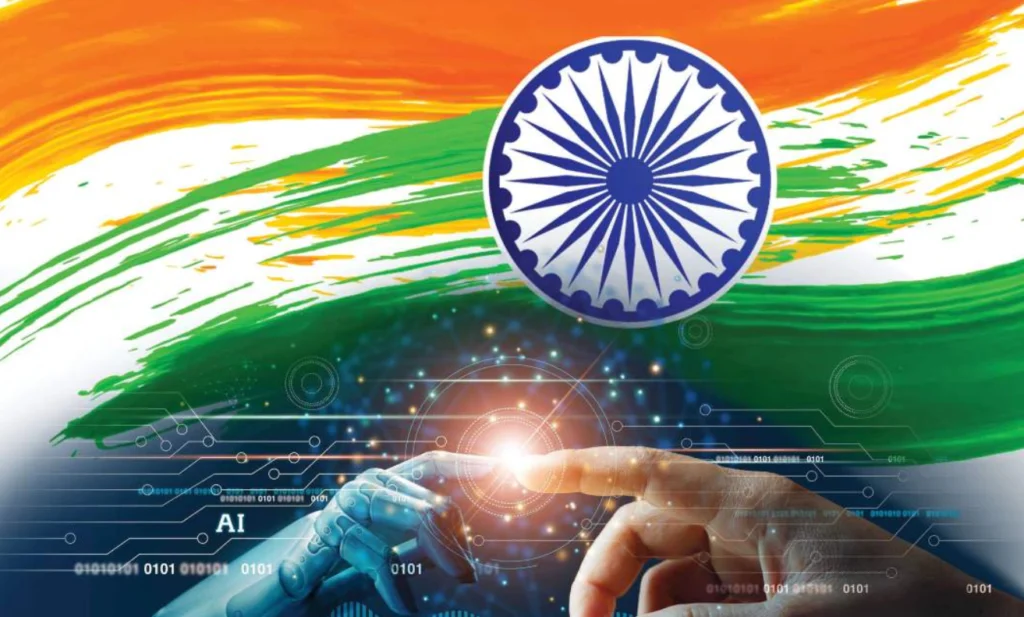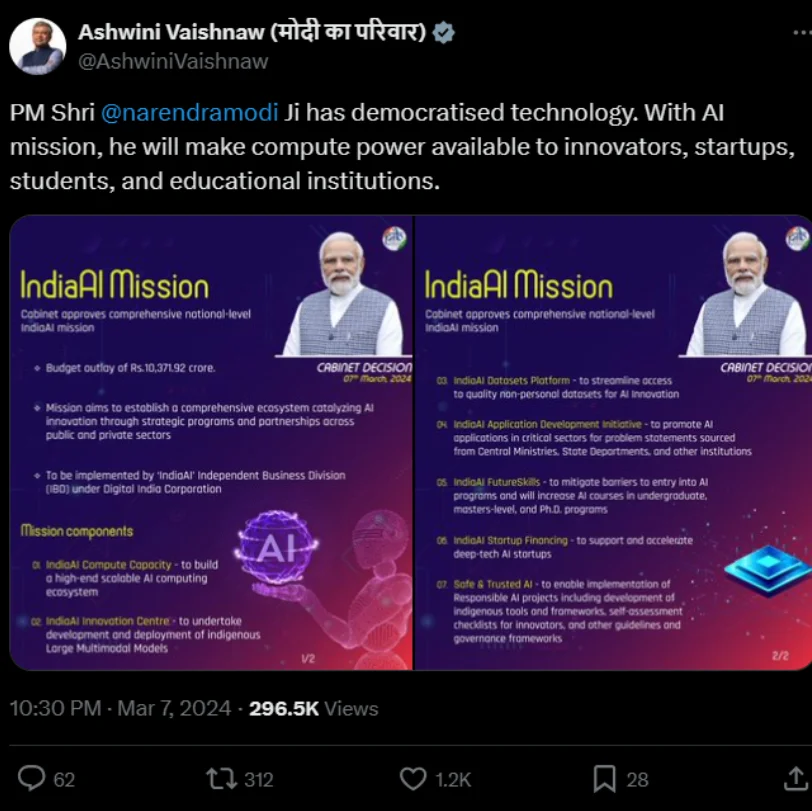The “IndiaAI Mission” has received an initial budget approval of 10,300 crore rupees ($1.24 billion) from the Union Cabinet, the highest governing body in India to support artificial intelligence (AI) ventures and innovations.

The IndiaAI Mission aims to grant innovators, entrepreneurs, students, and academic institutions convenient nationwide access to computing power, an essential element for developing and deploying artificial intelligence. Cabinet briefing minister Piyush Goyal, representing the Union, announced the development on March 7. The announcement in support read:
“The overarching aim of this financial outlay is to ensure a structured implementation of the IndiaAI Mission through a public-private partnership model aimed at nurturing India’s AI innovation ecosystem.”
Four components of the IndiaAI Mission are devoted to developing AI applications, refining access to high-quality non-personal data sets, and constructing and democratizing compute capacity and indigenous large multimodal models (LMMs).
An AI computing infrastructure comprising a minimum of 10,000 graphics processing units (GPUs) will be implemented to supply AI firms established via public-private partnerships with essential resources.
Other elements concentrate on the implementation of AI education courses, the funding of deep-tech AI businesses, and the construction of safety nets around AI developments.

Narendra Modi, the prime minister of India, stated:
“The Cabinet’s approval for the IndiaAI Mission will empower AI startups and expand access to compute infrastructure, marking a giant leap in our journey towards becoming a global leader in AI innovation.”
The Indian government thinks that advancements in artificial intelligence will foster economic growth and produce employment prospects for individuals with exceptional skills.
India issued a warning on March 1, requiring all technology companies to obtain government approval before releasing newly developed AI tools. Furthermore, the ministry stated:
“Availability to the users on Indian Internet must be done so with explicit permission of the Government of India.”
The advisory further requested that platforms ensure their tools do not pose a “threat to the integrity of the electoral process,” given the impending general elections in the summer of 2024.
